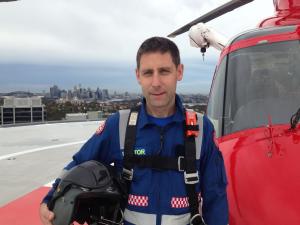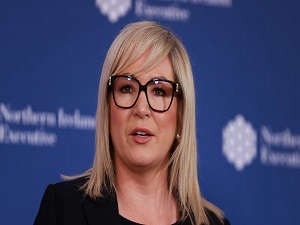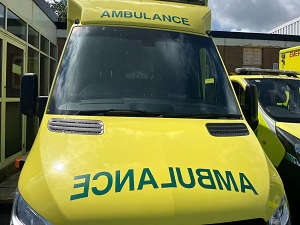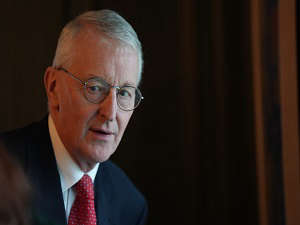
Flying doctors from around the world have written to Stormont's health minister to express concern about her plans for an air ambulance in Northern Ireland.
A total of 26 Helicopter Emergency Medical Service (HEMS) experts working in places such as Australia, the US, Canada, Hungary, Norway and Slovenia have raised fears with Michelle O'Neill that the new service will not have a doctor on board when it is launched.
Two specially designed medical helicopters are to be permanently based in Northern Ireland from next year. Former chancellor George Osborne pledged £4.5 million towards the project earlier this year.
Mrs O'Neill has not yet announced the final details of how the local HEMS will operate.
It got the go-ahead after a high-profile public campaign. One of its most vocal advocates was the late Dr John Hinds, one of the so-called "flying doctors" of Irish motorcycle racing who was killed in a bike crash last year. His loved ones took on the campaign after his death.
The international HEMS specialists have now expressed concern the service will fall short of Dr Hinds' vision.
They point to Mrs O'Neill's written response to a Stormont Assembly question tabled by Traditional Unionist Voice (TUV) leader Jim Allister.
In the reply, the minister indicated there would be an "initial staffing model" and also that "ultimately" there would be a doctor and paramedic on board.
The HEMS doctors expressed concern Mrs O'Neill's answer implied that initially the helicopters might not be staffed by doctors.
"We fear the service will not be capable of providing the best lifesaving care possible to the people of Northern Ireland from the outset if a doctor is not on board the helicopter," they wrote.
They said without a doctor, patients could not be put under a general anaesthetic.
"Placing a combative, agitated, head-injured or bleeding patient in a helicopter without a general anaesthetic is unsafe, both to the patient and the crew," said the letter.
"The 'Golden Hour' is then lost as these patients will have to be transported on sometimes lengthy journeys by road to the trauma centre.
"The economic cost-benefit argument of staffing a helicopter with a doctor is proven. The monetary value in terms of lives saved and decreased morbidity is clear. We urge you to ensure this is done and not to launch a substandard model in haste that has the potential to harm patients."
The flying doctors offered their expertise to help deliver a doctor-led HEMS in Northern Ireland.
The letter to the minister concluded: "Dr John Hinds was an advocate of excellence in trauma care.
"He believed the people of Northern Ireland deserved a world-class HEMS.
"His advocacy has focused the global trauma community's attention on Northern Ireland. We sincerely hope you make the right decision."
Among the signatories were Dublin-born Brian Burns, an associate professor and pre-hospital and retrieval specialist based in Sydney, Australia, and Scotland's lead consultant in retrieval medicine, Dr Stephen Hearns.
In response to the letter, a spokeswoman for Mrs O'Neill's department said: "The Helicopter Emergency Medical Service (HEMS) will be a key element within the North's Trauma Network and the planning for both, the introduction of HEMS and the further development of the Trauma Network to deliver this enhanced service for trauma patients, is moving forward concurrently.
"That planning process is not yet complete and as part of this process, the Department of Health and its Arms Length Bodies have engaged extensively with a wide range of HEMS and trauma experts, including members of the interest group represented by Dr Burns.
"The Minister will make her final decisions on the HEMS model based on the professional advice which the chief medical officer Dr Michael McBride is assembling following consultation with all key stakeholders, both on HEMS and the Trauma Network.
"While the Minister welcomes views from all interested parties, she will announce her decision after she has had the opportunity to consider the chief medical officer's report."


 O’Neill praises Pope’s commitment to peace as she confirms funeral attendance
O’Neill praises Pope’s commitment to peace as she confirms funeral attendance
 Woman suffers ‘traumatic ordeal’ in roadside robbery in Newry
Woman suffers ‘traumatic ordeal’ in roadside robbery in Newry
 Shock over record number of attacks on ambulance crew
Shock over record number of attacks on ambulance crew
 Police investigate petrol bomb attack at Co Antrim flat
Police investigate petrol bomb attack at Co Antrim flat
 Benn to discuss legacy issues with Harris at Hillsborough Castle
Benn to discuss legacy issues with Harris at Hillsborough Castle